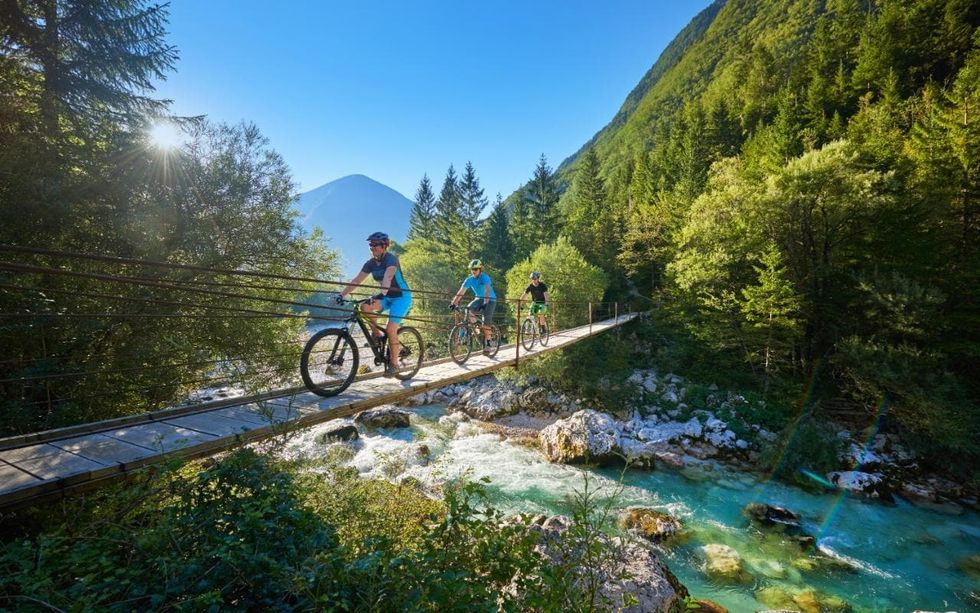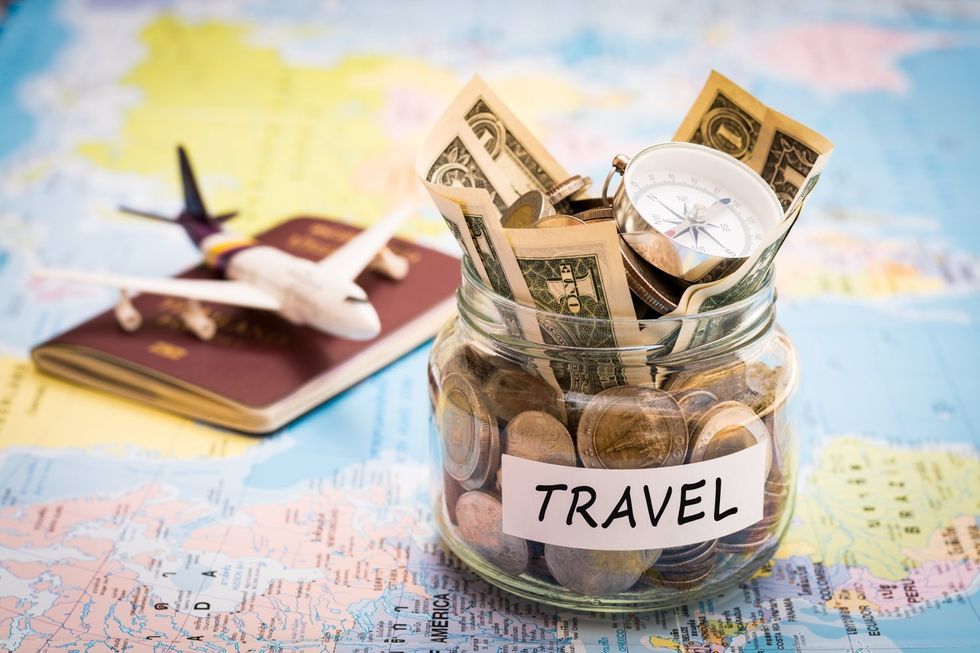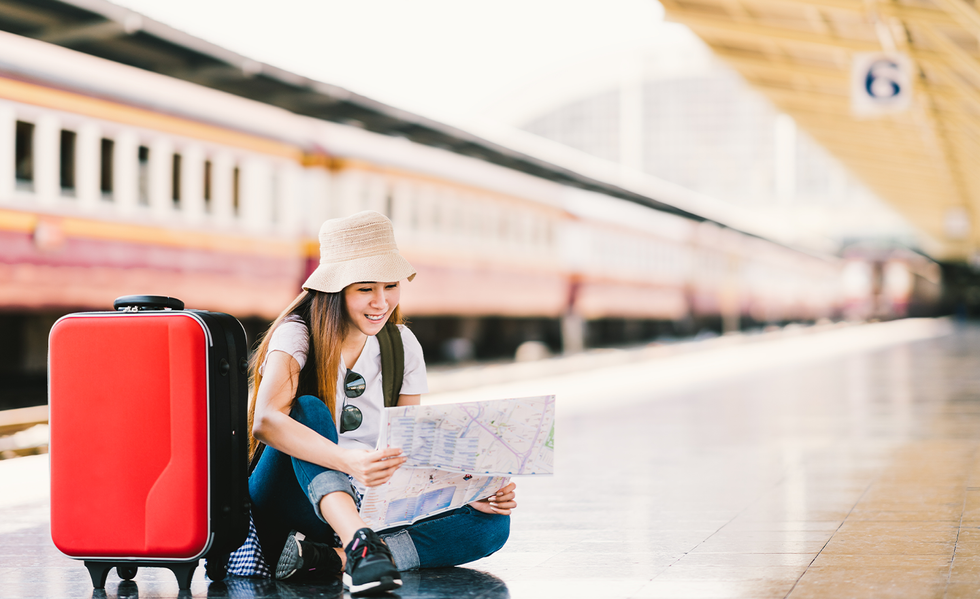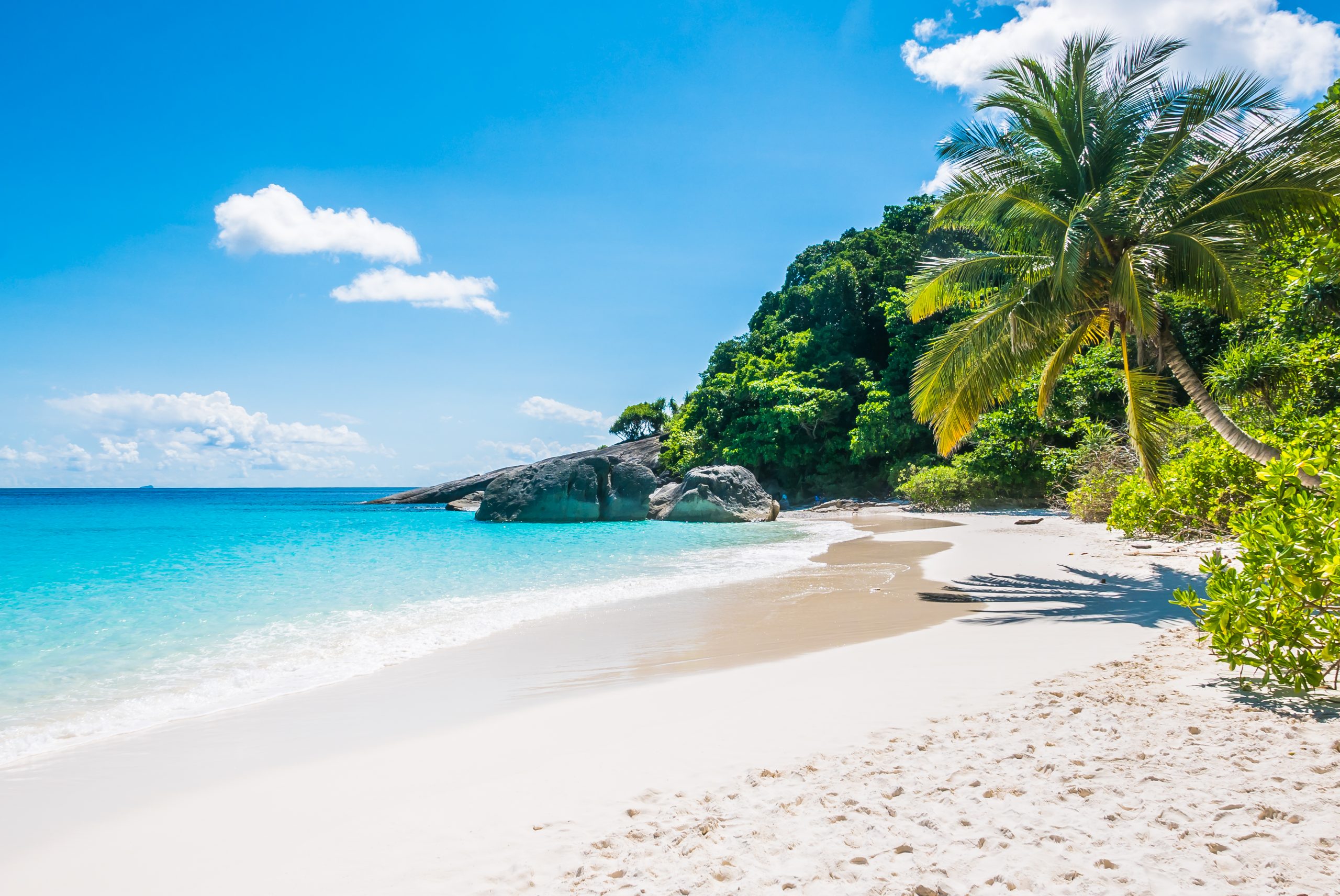
Deep Travel: The Secret to Feeling Happier on the Road


You know that feeling—the still point in between all the movement and chaos of travel, when you look around and you’re knocked out by the beauty of the world around you?
The moment when you’re driving through a mountain range across the world, or watching the sun set over the lake in your hometown, and you feel your heart fall into tune with your surroundings? It’s a moment when everything drops away, and the purpose of life feels crystal clear and simpler than ever.
For many of us, that feeling is the reason why we travel. Sure, the photographs are great souvenirs—but we travel for the experience.
Some writers have called this feeling “deep travel.” According to former New Yorker staff writer Tony Hiss, deep travel is a “feeling of interconnectedness and heightened experience.” It’s “an exhilarating state of mind that travel can evoke, when everything seems suddenly fresh, vivid, intensely interesting, and memorable.”
Of course, it doesn’t always work out that way. It’s easy to get wrapped up in logistics, to get discouraged when something goes wrong, or to get overwhelmed by the pressure to have an incredible vacation.
Fortunately, there are ways to maximize the amount of deep travel experiences that you have, and here’s a spoiler: It starts from within.
How to Access the Deep Travel State…
1. Give yourself time
So often, tourists try to cram too many destinations into a single trip. This is incredibly tempting, as there are so many beautiful places to see and most of us have limited vacation time—but really, what are you going to get from speeding between Venice, Rome, Napoli, and Florence in four days other than blisters on your feet and an awful headache? You’d be much better off spending the time soaking in the magic of Firenze. A good rule of thumb for travel in general is to spend at least two full days (or three nights) in any city or location.
If you think back to the times that you’ve felt electrified or moved by a travel experience, you might realize that these experiences don’t always happen when you think they will. An expensive beach resort, a wild safari, or a twelve-hour bus tour can create a deep travel experience, but it’s more likely that you’ll find what you’re looking for by traveling slowly.

2. Meet locals
In order to fully immerse yourself in a place, you’ll want to avoid the most touristy attractions. The best way to do this is to meet the locals.
If you want to go all-in, you can live with a local through a program like Couchsurfing or Workaway. Couchsurfing is just for accommodations, but Workaway involves doing four to five hours of work for your host each day in exchange for room and board. It’s one of the best ways to get close to locals and other travelers quickly, while also traveling cheaply.
Of course, you can also just visit local haunts and start talking to people—or you can enroll in a class, attend a festival, or take part in another experience that will allow you to get to know the people living there.

3. Leave things open to chance
Getting lost is one of the absolute best ways to experience deep travel. Especially in the era of WiFi and smartphones, you’re not really in danger of being totally stranded (just make sure you check the time of the last bus).
Instead of trying to check off the best destinations, try opening yourself up to fate. Always favor experiences over destinations, ask locals where they think you should go, put on your best walking shoes, and let yourself wander.
When wandering, try to drink in the sights of the world around you. The gardens hidden between buildings, the old man and his wife lingering beside the river, the accordion player in the subway station—they’re what will bring you to that state of peace and connection that defines deep travel.

4. Do some research
While you should always be open to chance, it’s never a bad idea to do some research and planning before setting sail. First and foremost, you should definitely check bus and train times and book your hostel or hotel in advance; that way you won’t have to stress about these things while on the road.
Try bringing along some literature by writers who lived in the area, or carry around a research or fun-fact guide. Having some knowledge of a place’s history, culture, and language can only help you deepen your connection to wherever you are—so grab some Lorca while in Spain, or De Beauvoir in Paris, and let your mind wander alongside your body. In general, you should prioritize destinations that align with your interests. Spend time chasing the ghosts of your favorite artists around New York. See the local sports team play. Whatever floats your boat, it’s always worth customizing your trip based on your own preferences rather than blindly following in the footsteps of the crowds.

5. Don’t spend that much money
This is a win-win rule to live by while traveling. While you don’t want to deprive yourself, sometimes you can enhance your travel experience by sticking to the free or cheap stuff. Typically, the most touristy of attractions can be the most expensive, while gems will be hiding in plain sight.
Instead of picking places or attractions because of their value, pick destinations based on reviews and local recommendations. Instead of favoring expensive meals every night, try out the local dive—or cook pasta with other hostel occupants. Instead of flying from place to place, try out a long train ride, and watch the countryside pass by.
Don’t feel like your whole trip is ruined if you skip out on a place because the admission fee is too high. Instead, prioritize experiences over checklists, and memories over souvenirs.

6. Don’t expect everything to go well
If you set out on the road expecting everything to go exactly as planned, you’re going to be disappointed. Accept it now: Your bus will be late. Your hostel will be loud. The food will be disappointing, the attraction sold out. That’s all part of the journey. Crying in a hostel bed is part of traveling. Buying the wrong train ticket or falling asleep and missing your stop is, you guessed it—part of traveling.
You can and should plan for mistakes—always leave a few extra hours to get anywhere, and buy museum tickets in advance—but regardless, things will always go wrong while you’re traveling. You might see unexpected sights; you might have to sleep in a train station; you might wind up spending the night in a city you’ve never heard of. You’ll wind up in transit and waiting in lines far longer than you planned.
If you can find a way to treat all of this like part of the trip, not like a hindrance, you’ll find that you’ll be far more open to deep travel experiences than if you’d been meticulously counting your wins and losses.

7. Travel alone
Traveling alone gives you time to think and to get to know yourself. It allows you to follow your own rhythms, to create your own path, and to see what you want to see. It also makes it easier to meet people, and to make impulsive decisions about where to go next.
One of the most rewarding parts of travel is the strangers you meet on the road, the brief bonds or sunrise conversations with people you’ve never met before and will never see again—and especially when traveling alone, you’ll find it’s shockingly easy to talk to people, even if you’re introverted. Plus, when you’re not constantly chattering with a companion from home, you can soak in the place that you are, and you can allow new experiences to expand your mind and even change your life.
Of course, traveling alone comes with its own baggage and safety concerns, but it’s generally a great excuse to totally escape, to try on new personas, and to embrace your surroundings on a deeper level.

Ultimately, deep travel is about opening your mind to new surroundings. It’s about allowing yourself to appreciate the beautiful world you live in, and the body that allows you to experience all its salt and wind and sound. It’s what pushes us to keep adventuring into the unknown. It’s about paying attention to the inner dimensions of your travel experience, rather than just the exterior aspects. If you do it right, it can make all the difference.
As anyone who’s been on a family vacation that erupted into fights at the hotel bar knows, any trip can be utter misery if you’re in the wrong state of mind. But with deep travel skills in your arsenal, any destination can be a paradise.
{% if 4406306 in post.sections %} {% if post.layout_name==’GeistM total blank’ %} {% if post.layout_name==’GeistM Foreign’ %} {% if post.layout_name==’GeistM no top ad all devices’ %} {% else %} {% else %}
{% endif %} {% endif %} {% endif %} {% endif %}- admission fees
- adventure
- advice for travelers
- backpack
- backpacking europe
- cheap travel
- couchsurfing
- deep travel
- get lost
- hostel
- how to enjoy travel
- italy
- lost
- mindful travel
- paris
- research
- save money
- spain
- tips for travelers
- travel happiness
- travel mindset
- travel mishaps
- travel sadness
- wandering
- workaway


